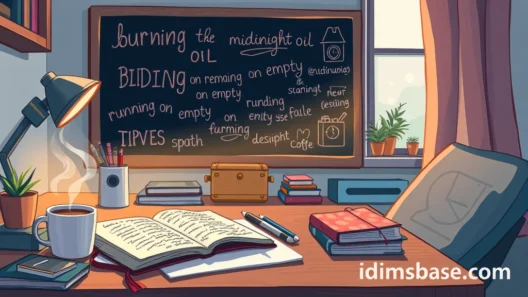Have you ever found yourself packing your bags, dreaming of faraway lands, and wishing you had just the right words to describe the wanderlust bubbling inside you? Or perhaps you’ve returned from an incredible adventure, eager to share your tales, but feeling like everyday language just doesn’t quite capture the magic? Well, you're in luck! The English language, with its rich tapestry of expressions, offers a treasure trove of idioms perfect for every travel scenario.
Idioms are those quirky phrases where the meaning isn't obvious from the individual words. They add color, depth, and a touch of wit to our conversations, making us sound more like native speakers and, frankly, a lot more interesting! Whether you're planning your next big trip, currently exploring a new destination, or simply reminiscing about past journeys, these 35 travel idioms will equip you with the perfect linguistic tools to express your globetrotting spirit. So, let’s embark on this linguistic adventure together, shall we?
35 Idioms for Travel
Get ready to spice up your travel vocabulary! From setting off on a grand adventure to returning home with a heart full of memories, these idioms cover every aspect of your journey.
Idioms for Planning and Starting a Trip
- Hit the road: This means to begin a journey, especially by car.
- Example: "It's 6 AM! Let's hit the road before traffic gets bad."
- Get itchy feet: To have a strong desire to travel or move to a different place.
- Example: "After working in the same city for five years, I started to get itchy feet and booked a trip to Patagonia."
- Pack your bags: To prepare for a trip by putting clothes and other necessities into luggage.
- Example: "Are you ready to pack your bags for the beach vacation next week?"
- Set off/out: To begin a journey.
- Example: "We're setting off early tomorrow to catch the sunrise over the mountains."
- On the go: Constantly busy, traveling, or moving from place to place.
- Example: "Ever since I became a travel blogger, I'm always on the go."
- Travel light: To travel with very little luggage.
- Example: "For a weekend trip, I always try to travel light with just a small backpack."
- Have wanderlust: A strong desire to travel and explore the world.
- Example: "My friend has serious wanderlust; she's always planning her next international adventure."
- The open road: A long stretch of road, often in the countryside, symbolizing freedom and adventure.
- Example: "There's nothing quite like the feeling of the open road ahead of you."
Idioms for Being on a Journey
- Live out of a suitcase: To stay in various places for short periods, without unpacking your clothes or possessions.
- Example: "After a month of living out of a suitcase, I'm ready for a proper bed."
- Off the beaten path/track: To a place that is not well-known or frequently visited.
- Example: "We decided to explore a small village off the beaten path to experience authentic local culture."
- Hit the ground running: To start a new activity quickly and with great energy. Often used when arriving in a new place.
- Example: "As soon as we landed, we hit the ground running, eager to see all the sights."
- Travel broadens the mind: The experience of traveling makes a person more understanding and knowledgeable.
- Example: "Visiting so many different countries has truly shown me that travel broadens the mind."
- Get away from it all: To go somewhere different from your usual environment, often for a vacation, to relax.
- Example: "I just need a week to get away from it all and escape the city noise."
- In full swing: At a stage when the level of activity is at its highest.
- Example: "By the time we arrived, the festival was in full swing, with music and dancing everywhere."
- A stone's throw (away): A very short distance.
- Example: "Our hotel was a stone's throw from the Eiffel Tower, which was perfect!"
- Take a detour: To take a longer or different route than the usual or most direct one.
- Example: "We took a detour through the countryside to see the famous lavender fields."
- See the world: To travel to many different countries and experience various cultures.
- Example: "My dream is to save enough money to see the world before I settle down."
- On a shoestring budget: Traveling with very little money.
- Example: "When I was younger, I backpacked through Europe on a shoestring budget."
- Rough it: To live for a short time in conditions that are not very comfortable.
- Example: "We decided to rough it in a tent for a few nights to truly experience the wilderness."
- When in Rome (do as the Romans do): When you are visiting a foreign country, you should follow the customs of the people in that country.
- Example: "I tried the local delicacy, even though it looked strange. Well, when in Rome, right?"
- Catch some rays: To sit or lie in the sun.
- Example: "After a long flight, all I wanted to do was catch some rays by the hotel pool."
- Get a taste of (something): To have a brief experience of something.
- Example: "Our short visit to Tokyo allowed us to get a taste of Japanese culture."
- Local color: The customs, traditions, and general atmosphere of a particular place.
- Example: "The market was full of local color, with vendors selling handmade crafts and exotic spices."
Idioms for Ending a Trip and Reflecting

- Back to square one: To return to the beginning of a process or activity because a mistake has been made or something has gone wrong. (Often used when travel plans go awry).
- Example: "Our flight was canceled, so we're back to square one with our travel plans."
- Home sweet home: An expression used to say that one is happy to be back in their own home.
- Example: "After two weeks of traveling, it feels great to be back in my own bed. Home sweet home!"
- The journey of a thousand miles begins with a single step: A proverb meaning that even the longest and most difficult undertakings have a starting point.
- Example: "Don't be overwhelmed by the big trip; remember, the journey of a thousand miles begins with a single step."
- Worn out: Extremely tired.
- Example: "After hiking all day, I was completely worn out but happy."
- Hit the road jack: An informal way of saying "leave" or "go away."
- Example: "It's getting late; time for us to hit the road, jack." (Less common as a general travel idiom, more for departure).
- Travel bug: A strong desire to travel. (Similar to itchy feet/wanderlust but implies being 'bitten' by the desire).
- Example: "Once you catch the travel bug, it's hard to stay in one place for long."
- Be on your way: To be leaving or departing.
- Example: "It's getting late, I should be on my way."
- Take a trip down memory lane: To remember and talk about pleasant things that happened in the past.
- Example: "Looking at all our photos from Italy, we took a trip down memory lane."
- All good things must come to an end: A saying used to express the sadness that something enjoyable is finishing.
- Example: "Our amazing vacation is over. Well, all good things must come to an end."
- Have a good run: To have a period of success or enjoyment.
- Example: "Our backpacking trip through Southeast Asia had a good run, but now it's time to go home."
- Get back in the saddle: To return to an activity that you had stopped doing.
- Example: "After a relaxing vacation, it's hard to get back in the saddle at work."
- The world is your oyster: You can achieve anything you want and go anywhere you want.
- Example: "With your new degree and passion for travel, the world is your oyster!"
Isn't it fascinating how these simple phrases paint such vivid pictures of movement, exploration, and discovery? Using them correctly will not only impress your friends but also deepen your understanding of English and the nuances of travel experiences.
Key Takeaways
So, what have we learned from our linguistic journey today?
- Idioms add flavor: They make your English sound more natural, expressive, and engaging.
- Context is key: The meaning of an idiom isn't literal, so understanding the context is crucial.
- Practice makes perfect: The more you use these idioms, the more comfortable and natural they'll feel.
- Travel enriches language: Just as travel broadens the mind, discussing it with rich vocabulary makes the experience even more vibrant.
These idioms are more than just words; they are little nuggets of cultural insight, reflecting how we perceive and talk about the act of moving through the world.
Frequently Asked Questions (FAQ)
Q1: What is an idiom, and why are they important for learning English?

A1: An idiom is a phrase or expression where the meaning cannot be deduced from the literal definition of its individual words. For example, "kick the bucket" means to die, not to literally kick a bucket. Idioms are incredibly important for English learners because they are used very frequently in everyday conversation, literature, and media. Understanding and using them makes your English sound more natural, fluent, and sophisticated, helping you to truly "get" the nuances of the language and engage more deeply with native speakers. They're like secret codes that, once cracked, unlock a deeper understanding of the culture and way of thinking.
Q2: How can I remember so many travel idioms?
A2: Remembering idioms can feel like a challenge, but here are a few effective strategies:
- Contextual Learning: Instead of memorizing lists, try to learn idioms in sentences or stories. This helps you understand how they are used naturally.
- Visualization: Create a mental image for each idiom, even if it's silly. For "get itchy feet," imagine tiny feet itching to run off!
- Categorization: Group idioms by theme (like we did with travel stages) to make them easier to recall.
- Active Practice: Try to use one new idiom in a conversation or a piece of writing each day. The more you use them, the more they stick.
- Flashcards: Use digital or physical flashcards with the idiom on one side and its meaning and an example sentence on the other.
- Immersion: Watch travel vlogs, read travel blogs, and listen to podcasts about travel. You'll hear these idioms used naturally.
Q3: Are these travel idioms used worldwide, or are some specific to certain regions?
A3: Most of the idioms listed here are widely understood across the English-speaking world, particularly in North America, the UK, Australia, and New Zealand. Phrases like "hit the road," "get itchy feet," "travel light," "off the beaten path," and "home sweet home" are universally recognized. However, like any language, there can be slight regional variations or preferences. For instance, while "hit the road, jack" is understood, its common usage might vary. Generally, if you use these idioms, you'll be understood by most native English speakers, regardless of their origin. It’s always a good idea to listen to how native speakers around you use them to fine-tune your understanding.
Q4: Can using idioms make me sound more like a native English speaker?
A4: Absolutely! Using idioms is one of the clearest indicators of advanced English proficiency. Native speakers use idioms effortlessly and instinctually to convey complex ideas concisely and colorfully. When you integrate idioms naturally into your speech and writing, it shows that you understand the cultural nuances and figurative aspects of the language, making you sound much more natural and fluent. It’s like adding spices to a dish – it elevates the flavor and makes it more authentic.
Q5: What's the difference between "getting itchy feet" and having "wanderlust"?
A5: While both idioms describe a desire to travel, there's a subtle difference in nuance:
- Get itchy feet: This often implies a sudden, restless urge to leave a current situation or place and go somewhere new. It suggests a feeling of being unsettled and needing change. It can be a temporary feeling.
- Example: "I've been in this job for too long; I'm starting to get itchy feet."
- Wanderlust: This refers to a deep, inherent, and often continuous passion or strong desire for travel and exploration. It's more of a personality trait or a long-term inclination.
- Example: "She's always had wanderlust; she's never truly happy unless she's planning her next trip."
So, "itchy feet" is often a temporary feeling of restlessness, while "wanderlust" is a more profound and enduring love for travel.
- Example: "She's always had wanderlust; she's never truly happy unless she's planning her next trip."
Q6: Are there any idioms that mean the opposite of "travel light"?
A6: While there isn't a direct idiom that is the exact opposite of "travel light" (meaning to travel with heavy or a lot of luggage), you could describe someone who doesn't travel light by saying they:
- Bring the kitchen sink: This humorous idiom means to bring an excessive amount of unnecessary items on a trip.
- Example: "My sister always brings the kitchen sink when she travels; I don't know how she manages all those bags!"
This idiom perfectly captures the idea of overpacking, which is the antithesis of traveling light.
- Example: "My sister always brings the kitchen sink when she travels; I don't know how she manages all those bags!"
So, the next time you're planning an escape, exploring a new city, or simply dreaming of your next adventure, remember these fantastic idioms. They're your verbal passport to a more expressive and engaging travel narrative. Happy travels, and happy idiom-ing!







